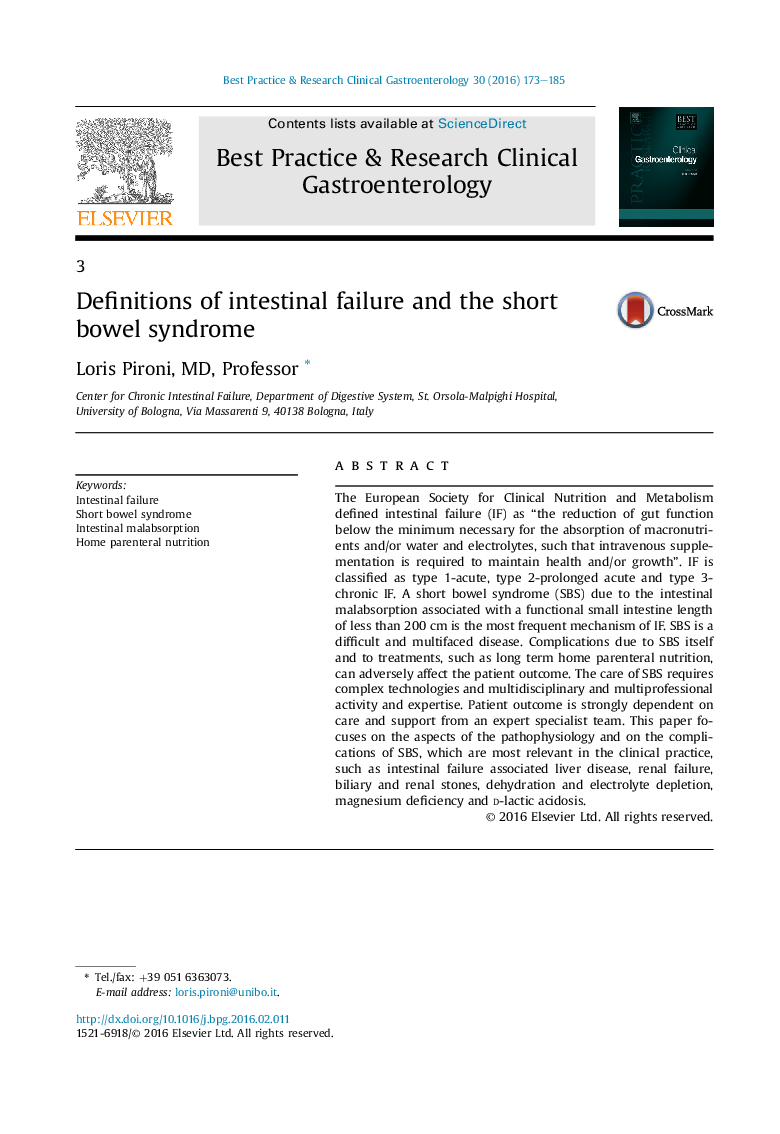| Article ID | Journal | Published Year | Pages | File Type |
|---|---|---|---|---|
| 3254122 | Best Practice & Research Clinical Gastroenterology | 2016 | 13 Pages |
The European Society for Clinical Nutrition and Metabolism defined intestinal failure (IF) as “the reduction of gut function below the minimum necessary for the absorption of macronutrients and/or water and electrolytes, such that intravenous supplementation is required to maintain health and/or growth”. IF is classified as type 1-acute, type 2-prolonged acute and type 3-chronic IF. A short bowel syndrome (SBS) due to the intestinal malabsorption associated with a functional small intestine length of less than 200 cm is the most frequent mechanism of IF. SBS is a difficult and multifaced disease. Complications due to SBS itself and to treatments, such as long term home parenteral nutrition, can adversely affect the patient outcome. The care of SBS requires complex technologies and multidisciplinary and multiprofessional activity and expertise. Patient outcome is strongly dependent on care and support from an expert specialist team. This paper focuses on the aspects of the pathophysiology and on the complications of SBS, which are most relevant in the clinical practice, such as intestinal failure associated liver disease, renal failure, biliary and renal stones, dehydration and electrolyte depletion, magnesium deficiency and d-lactic acidosis.
